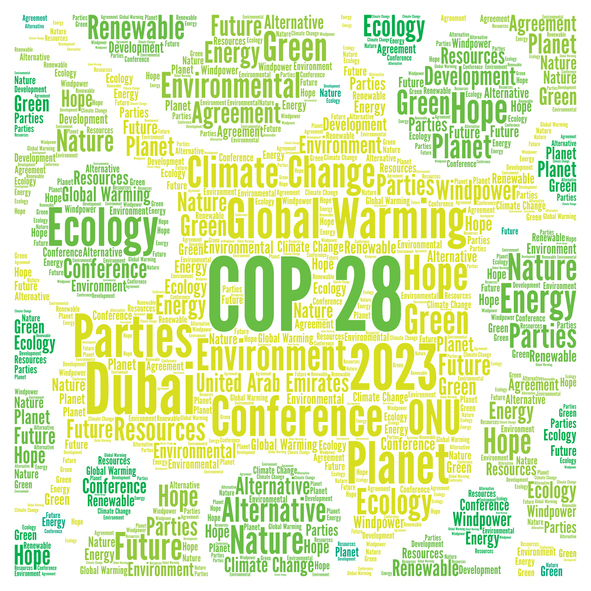Blog
A Bright Start at COP28: Progress and Pledges for a Sustainable Future with Technology as a Key Enabler

Our Everest Group team is pleased to share their analysis of positive developments from the first two days of COP28, with a specific focus on the global technology and tech services industries, in this blog. With positive momentum building, the outlook in the collective journey toward a more sustainable future is looking brighter.
Day 1: A historic leap forward
Creation of the loss and damage fund for the global south
The first day of COP28 was nothing short of historic. The formal creation of the Loss and Damage Fund for the Global South was a key highlight. This initiative marks a crucial step in addressing the disproportionate impact of climate change on vulnerable nations. The commitment of US$400 million in pledges is a testament to the global community’s dedication to creating a more equitable and resilient world.
Contributions from multiple nations to support climate adaptation in vulnerable regions
Notable contributors to the fund include the COP28 hosts, the UAE, with a generous pledge of US$100 million. Germany and the US also stepped up, pledging US$100 million and US$17 million, respectively. The UK, demonstrating its commitment to climate action, pledged £60 million. These pledges will undoubtedly play a pivotal role in supporting climate adaptation and mitigation efforts in the most vulnerable regions.
What does this mean for the sustainability enablement services market?
The funding can act as a political push for these nations to adopt technology to enable sustainable businesses and mitigate climate risks. Currently, Everest Group has observed a surge in sustainability technology adoption in developing countries. Environmental, Social, and Governance (ESG) data reporting, Artificial Intelligence (AI)-driven crop management, and Internet of Things (IoT)-led water management solutions are gaining traction. Evolving reporting standards and the imperative for climate-resilient business practices will drive the scalability of sustainability-enabling technologies in these regions.
Day 2: The United States takes center stage by addressing methane management as a crucial step for reaching net zero emissions
Environmental Protection Agency (EPA) announces regulations on methane leaks
The second day of COP28 brought a wave of positive news, particularly from the United States. Michael S. Regan, Administrator of the EPA, announced groundbreaking regulations aimed at addressing leaks of greenhouse gases (GHGs) like methane. Methane, the second most abundant greenhouse gas, contributes significantly to global warming.
Methane management requires predictive technologies and strict reporting frameworks
Efficient methane management requires precise methane measurement and prioritizing reporting. While the EPA has taken an important step towards regulating methane leaks, methane-emitting industries (like oil and gas) need to move towards a ‘predict and prevent’ model of methane management. These industries should leverage AI and IoT-based methane management platforms that track and measure methane emissions and prevent methane leaks using predictive analytics.
Duke Energy, for example, has collaborated with Accenture and Microsoft to build a first-of-its-kind, end-to-end Azure-based cloud platform that monitors baseline methane emissions from natural gas distribution assets (e.g., pipelines, gas meters), using satellite monitoring, analytics, and AI.
Industry coalitions underpin methane management, as players recognize the value of collaboration in reaching net zero emissions
The Global Decarbonization Accelerator, a coalition of 50 oil and gas companies representing over 40% of global production, made a resounding commitment to reduce methane emissions by 80-90% by 2030. This ambitious pledge demonstrates a growing industry recognition of the urgent need to transition towards cleaner and more sustainable practices.
In addition to industry commitments and public sector regulation, philanthropic efforts also took the spotlight. Bloomberg Philanthropies unveiled a $40 million program focused on transparency and accountability in methane reduction initiatives. This program is a crucial step towards ensuring that efforts to curb methane emissions are not only ambitious but also measurable and accountable. We see the potential for scaled partnerships with the private sector. A model of shared responsibility and accountability, with collaboration as a central vision, is necessary for methane mitigation.
What does this mean for the sustainability enablement services market?
The players in the sustainability enablement services landscape can expect higher demand for net zero services, along with solutions like emission management platforms and tools. Technology players and service providers should focus on forming collaborations with their client groups to advance research and pilot more solutions in this space.
Moving forward with optimism
As we reflect on the first two days of COP28, it is clear that we are witnessing a historic turning point in the global fight against climate change. The establishment of the Loss and Damage Fund, coupled with significant pledges, coalitions, and regulatory advancements, sends a powerful message that the world is ready to take bold action.
Everest Group constituents in the global technology and technology services industries have an important role to play in these efforts. We remain committed to helping providers navigate the sustainability enablement opportunity to help guide their clients toward a more resilient and environmentally conscious future.
As we continue our journey through COP28, let’s remain optimistic and committed to the shared goal of a sustainable and resilient future. Together, we can turn these pledges into impactful actions that will benefit not only our current generation but also those to come. Reach out to Rita Soni, [email protected], Arpita Dwivedi, [email protected], Meenakshi Narayanan, [email protected], or Ambika Kini, [email protected] for further discussion.
To learn more about key takeaways from the COP28 conference, watch our LinkedIn Live session, Building a Sustainable Future: Reflections on COP28 and Insights for 2024.